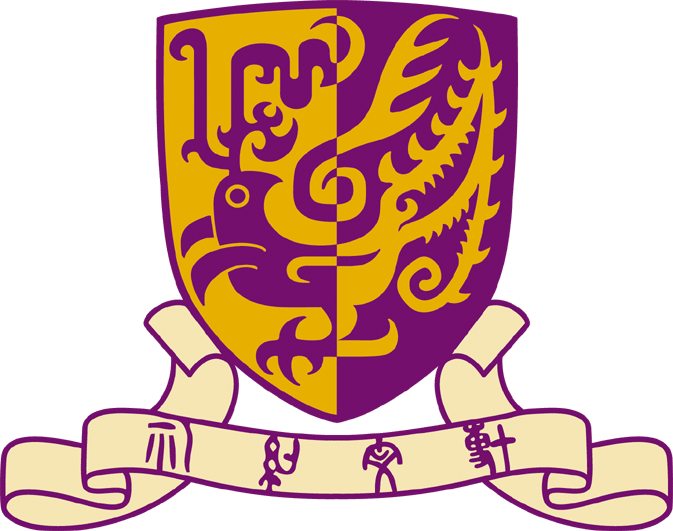Saichia從小就喜歡考古。但直到大學四年級,開始進行畢業習作的時候,她才發現學術研究的樂趣。「原來讀書上堂和做研究是這麼不同!我發覺,原來我很喜歡自己去研究一樣東西,嘗試去找答案。」
「從小到大,我不是住在同一個地方,沒有一個『家』的定義。現在我訪問不同的人、找尋不同的敘述,這是人類學家會做的事,也是在找我自己的家,找一群相信我們可以一起關心社會的人。」
「在戲劇裡,不同角色之間各有關聯。寫一個『反派』,是想令觀眾更加瞭解『正派』的主角是怎樣的人。而在人類學裡,探索異文化,最終也是想瞭解自己:世界連成一線,『他者』總是相對於『自我』而言的。這種概念不是每個人都有的啊!」
"Practicing movement is not about the body in the end; it is a way to connect."
「人類學對我來說不只是一個學科。我一直都把它視為生活的宗旨——以全面的視角理解社會現象,尊重别的文化,享受多樣性與差異,對不同於你的人保持好奇。這是一種態度。」
Philipp Demgenski completed his PhD in 2016 at the Department of Anthropology, CUHK. We talked to him about his PhD and current research, focusing on inner city redevelopment, urban heritage and also intangible cultural heritage politics in China.
From an asylum seeker, to a university student, then to a future financier.
「當整個社會變得更加不公平,不是只是清潔工才被剝削,而是所謂學者都處於一個被壓榨的狀態。但是不是就要說『你真係慘了,讀咁多書都係賺咁少錢』呢?我想這又會fall back into那種『讀更多書是為了賺更多錢』的意識形態。」
I practice to be open-minded about why people come to practice, but reminding myself what feels true to heart. To meet people where they are, but not forgetting my intentions: to enhance well-being, emotional awareness and open up to the wholeness of life.
「雖然做NGO很難大富大貴,但如果你學習了人類學、了解到現今世界上存在著的種種問題,而又不僅僅是想走學術路線、想有更加直接的影響的話,NGO會是一個較為自由的、很有發揮空間的領域。」
「技术和技能方面的欠缺可以通過自学和繼續教育來補充,跨文化沟通能力以及邏輯思維,這些看似『自由而無用』的可貴能力與綜合素質,卻是需要長時間鍛煉與培養的,也正正是人類學學術訓練當中最為重視的素質。」
「一方面,我們是一張白紙,但是因為我們在學習的過程中需要做很多分析和整理,所以我們既可以被人mold,又能夠思考、整合學到的新知識,用自己的方式重新表述出來。這是人類學畢業生的長處,見工的時候也應該特別指出呀!」
「與其埋怨大家都讀錯字、發懶音,不如多花點功夫去探究語言為什麼會發生這樣的變化。尤其是研究當代語言,不要一直閉門造車,而是要進入人群當中,多看、多聽,甚至一起講、一同生活,來補足我們對語言發展的解釋與論述。要做一個田野裡的語言學家!」
「資本主義的巨輪已經太大……是呀,世界可能改變不了,但還是可以在資本主義世界裡找一個嚹隙,嘗試活出一種自己喜歡的生活模式,為自己的理想活出一種sample,這其實已經很有意義、很重要。」
「本來我是想讀社會學,結果行錯路去了人類學系那層——大部分中學生如我都不知道這科,總覺得好多讀人類學的人都是蕩失路、撞上去,卻發現它比其他學科更有魅力、神秘——從前的人類學家研究原始部落文化。」
「如果一開始沒有很清晰的職業目標,那麼可以按照自己的興趣和直覺去嘗試,如果真的是合適的,累積的經驗就可以幫助到之後的發展。未必第一步就成功,但你先行出第一步,或許就可以慢慢走出一條適合自己的路。」
「在日本,女性結婚之後,很多公司都不會期望你仍然會認真工作,只當你是打雜;彷彿你就不是有自己的職業發展期望和個人成長需要的普通人。女性面前還是有一道牆在,牆還是很硬。」
「出版這個行業需要有一場大革命,這個行業必須想出一個新的發展方向——這不是一個人可以做到的事,要大家一起思考……如果你覺得那件事有價值,不如你去做推動的那一個。」
"Employing approaches developed in Science and Technology Studies, I explore the cultural logics underlying the controversy of waste incineration technology."
"My principal research interests lie in the field of sociocultural anthropology, namely, religion and secularism, morality and civil society, state-subject relationship, governmentality and subjectivity."
"In my point of view, anthropology, especially the ethnographic approach, can help us to understand 'China' as a complex whole and reveal juxtapositions of social contexts often covered by structural studies on processes."
"Human beings are irrational, at least so-called rationality is finite in terms of time and space. To me, anthropology's job is to present in what terms the seemingly absolute 'reason' is absurd."
"Having been obsessed with old things since childhood, I decided to combine this personal passion with my intellectual pursuit: studying the lives of antique collectors!"
"I am interested to know how nuclear technology as a relational practice cuts through people's life and experience at local scale and the politics it fosters at national and transnational scale."
"While studying Economics many ages ago a Professor once introduced his first lecture by saying: 'This course is about why some countries are rich and others poor. The only way we can understand that is to talk about how things can be quantified by money. Do not bring culture into this classroom. If you want to talk about culture, the anthropology department is across campus.' I discovered it was a long road full of twists and turns, but eventually I made the journey across 'campus'."
"My research interests are food studies, agrarian studies, environmental anthropology. "
"I landed in China in 2011 where I have taught Italian and struggled with learning Chinese for almost three years. Puzzled by this country and its fast changes, I applied for the Ph.D. programme at CUHK as a way to deep my understanding about it."
"I have an enduring interest on the topics of the meaning of construction, maintenance, and transformation of the inter-relations amongst people, and that between people and the society."
"Packaging tradition represents a new development strategy in China which aims to set new prices for local products."
"It offers me a chance to discover a new world that I have never experienced before."
"I want to demonstrate how individuals joining intentional communities are engaged in personal and social transformation projects."
"Anthropology has taught me the value of contextualizing and particularizing social phenomena across cultural milieus."
"My MPhil project is on public dance (guangchangwu) in mainland China and I did my fieldwork in Henan Province in 2013. Through the lens of this grassroots dancing activity, I tried to touch some main anthropological themes including the transformation of space, disciplined body, and the dynamics behind social solidarity."
"I seek to understand how different factions of activists construct the 'Hongkonger' identity that fits with their political agenda."
"The positive influence it has on me does not just come from its special way of thinking, but also from the alternatives it provides, the interdisciplinary methodology and the modest attitude it bears to understand our world in a more comprehensive way."
"When we try to understand other's life, we are also re-evaluating our own."
"I am looking for the social implications of "being 'an internet addict'" in China, and trying to interpret what is actually occurring to these youngsters and their family."
"I think studying anthropology gives us the precise chance to break away with a single life--by reading and studying other cultures and peoples, we are able to realize the relativity of our own lives and a further understanding of humanity is reached only after this reflection."
"Anthropology paints vivid pictures of people's lives and their social relationship, which encourages me to sense life with an exquisite heart and a more nuanced view."
"Studying Anthropology is always a fruitful adventure which leads students to explore diversified cultures and develop their own interests."
"I love listening to others' life stories and experiences, and anthropology is a discipline that can take these into research projects."
"Through analyzing the life experience of shaman as well as the consulting practices of their clients, I seek to learn how shamanism becomes a kind of resource for clients to solve their existential crisis."
"I was a unique student at CUHK's MA program in Anthropology, but ask around: everyone in the program has a unique situation."
"Social and cultural constructions are often disguised and represented as natural and unchangeable. "
"I like learning about people and cultures to have a better understanding of the world."
"The MA study in Anthropology reshaped my worldview, enabling me to reinterpret everyday life for meanings beyond my empirical perspective."
「在人類學裡面,你要學會的不僅是怎樣讀書,怎樣寫作,怎樣表達;更要學會的是如何去思考問題,如何去看待跟你的生活經驗完全不同的人和事,怎樣去跟各式各樣不同的人打交道。」

